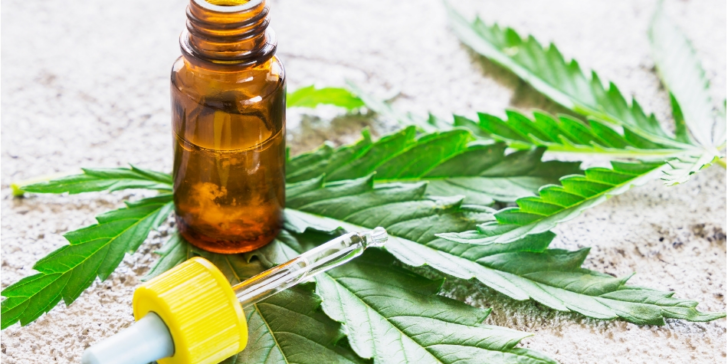
Opioid addiction in the U. S can be termed as a major crisis today, to a point where researchers have been forced into looking at alternatives remedies besides the existing therapies. Millions of Americans are fighting all kinds of addiction, from synthetic opioids, psychostimulants, prescription pain killers, to addictive drugs such as alcohol and tobacco.
Modern pharmaceutical drugs for fighting addiction are available and sufficient to some effect. However, cannabidiol, better known as CBD has been receiving all the attention as a natural alternative for treating opioid addiction.
Since the mid-90s, the rates of drug addiction and deaths related to addiction have increased alarmingly, with more and more people struggling to beat substance abuse disorder.
Read more: A Quick Overview of Equipoise
Documented statistics from the National Center for Health Aerial yoga hammock Statistics (NCHS) show that about 63,000 people died in 2016 alone, more than triple the number of similar deaths recorded in 1999. Even more alarming, The National Institute of Drug Abuse (NIADA) estimates 110 as the number of people losing their lives due to opioid overdose daily.
Using CBD for Opioid Addiction
Both opioids and CBD interact with brain receptors relating to pain, addiction, and behavior. The former interacts with neurotransmitters to bar pain and raise dopamine and endorphins, causing an artificial ‘high’ effect that can be recreated through opioid consumption only. Although the exact pharmacology of CBD is still underway, it is believed that it interacts with pain receptors and neurotransmitters of the brain.
Read more: Anabolic Steroids Buying Guide
The one aspect that has given CBD credence in the treatment of opioid addiction is its anxiolytic and analgesic properties. That means it is capable of reducing pain, anxiety, and reversing several symptoms of drug addiction at the same time.
In drug addiction cases, addicts usually experience neuronal circuits, which, according to study can be effectively modulated through CBD. Chong’s choice CBD oil is capable of tempering the brain’s response to triggers of addiction such as stress, anxiety, and pain without causing the ‘high’ effect linked with opioids. The analgesic properties of CBD act as opioid sparing agents mitigating pain and associated symptoms while allowing for lower doses of opioid.
How to treat addiction with CBD
Currently, CBD is facing some legal backlash from some governmental and non-governmental bodies mainly due to its direct links with the banned marijuana. Before going further with understanding how it treats opioid addiction, it is essential to know more about this amazing remedy.
Briefly, what is CBD? CBD is a botanical derivative of the cannabis sativa plant. It is one of the 100-plus known cannabinoids found in the plant, but with numerous health benefits according to scientific research. Besides, cannabidiol, there is also another very dominant compound in the plant known as THC, or tetrahydrocannabinol. THC is the psychoactive compound known to cause users the high effect. The backlash against CBD has been hugely due to complaints of slight traces of THC found in CBD oil, but CBD in its pure state is highly valuable in the treatment of several conditions without side effects.
The prospects of finding a lasting solution in the treatment of drug addiction through CBD look promising. There are three stages involved in the establishment of whether indeed CBD is the way to go; intoxication, withdrawal, and relapse.
- CBD during intoxication – Intoxication is the stage where the drug in question produces the ‘experience’ intended. The initial study was carried out on animals, and it was established that CBD significantly reduced the rewarding effects of opioids.
- CBD during withdrawal – Common drugs harbor some hazardous withdrawal effects to users. Today, there are only a few effective pharmaceutical drugs for curbing the consequences, but CBD positively inhibits some of the most common withdrawal symptoms. Researchers found that continuous use of CBD eliminated all withdrawal symptoms including anxiety and dissociation.
- CBD during relapse–The relapse stage is a crucial period where the addict experiences drug cravings and is about to do anything to obtain the same drug after abstaining. At this stage, CBD is far more effective as it decreases the drug-seeking behaviors experienced during this stage. Drug cues, stress, and anxiety can cause a relapse, but clinical evidence shows that cannabidiol significantly reduces such effects. Notably, CBD is exceedingly helpful when users are going through the vulnerable stages of addiction, and equally relevant when taken briefly for long term effects.
If comprehensive studies are anything to go by, then it is expected that CBD will be used as the most effective, and the safest method of overcoming opioid addiction. By being non-addictive, CBD is expected to address a wide array of conditions that have proven stubborn over the years.
Worth noting is the fact that the health benefits of CBD, including its ability to treat addiction symptoms, can only be realized through consumption of the right substance. FDA is yet to regulate the use of CBD, and to that effect, people need to be ultra-careful especially with online purchases.
